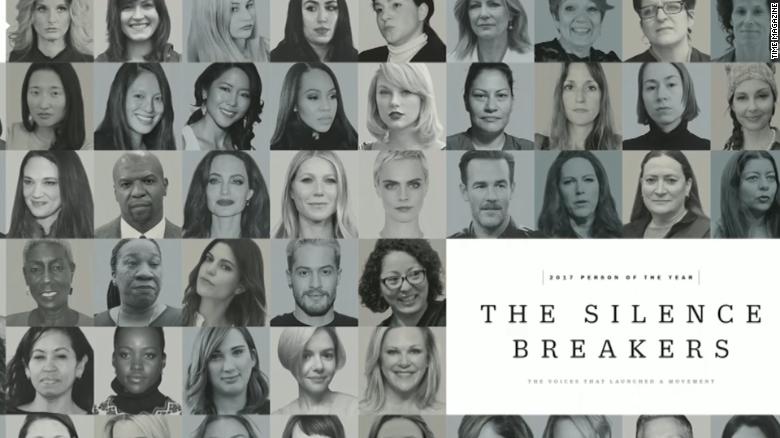
On April 26th, a jury found Bill Cosby guilty of drugging and sexually assaulting Andrea Constand, the former director of operations for Temple University’s women’s basketball team, in 2004. Cosby intially met Constand in 2002 through a mutual friend. Before the assault, the two shared a mentor-mentee relationship.
In 2005, after confiding in her mother about the incident, Constand brought forward the first public allegations against Cosby. Later that year, Montgomery County District Attorney Bruce L. Castor Jr. decided to not file charges against him, citing “insufficient credible and admissible evidence.”
Following this dismissal, Constand filed a civil lawsuit against Cosby. The suit was eventually settled out of court in November 2006 but resulted in over 1,000 pages of deposition (in which Cosby admits to purchasing quaaludes with the intent to give them to women he wanted to have sex with) and prompted thirteen women, identified in the press at the time as Jane Does, to come forward with stories similar to Constand’s. Many of these women would later identify themselves and go public with their allegations.
It wasn’t until 2014, when Newsweek revived the allegations against Cosby by publishing interviews with Tamara Green (one of the first women to publicly support Constand’s allegations by speaking to NBC about her own experience) and Barbara Bowman (one of the aforementioned Jane Does), that Cosby’s reputation began to unravel.
Over the course of the following three years, countless women would bravely share their stories of abuse at Cosby’s hands. A common thread emerged across the allegations: Cosby would often drug his victims before assaulting them. In 2015, New York Magazine made waves with its powerful cover featuring stark, side-by-side portraits of 35 women whom Cosby allegedly assaulted.
Though the jurors who found Cosby guilty last week claim their decision was not swayed by the recent momentum of the #MeToo movement, it’s difficult to avoid placing the verdict within the context of recent conversation on the abuse of power among men in Hollywood. Despite the jury’s insistence that they were not influenced by the current social climate surrounding sexual assault, the verdict is still a watershed moment for survivors—#MeToo founder Tarana Burke, as well as celebrities who have spoken against sexual misconduct in entertainment such as Terry Crews and Rose McGowan, all took to Twitter to voice their support of the jury’s decision.
 The past year’s worth of allegations against Hollywood moguls (Harvey Weinstein), music tycoons (Russell Simmons), politicians (Donald Trump), fashion industry big shots (Terry Richardson) and art world giants (Knight Landesman) have indisputably led to increased awareness of the ways in which rape culture permeates the workplace in every industry. Since Ronan Farrow’s investigative report on Harvey Weinstein was published, Time has kept a lengthy list of public figures accused of misconduct. Earlier this week, The New York Times published a piece on rapper R. Kelly’s #MeToo reckoning that details his two-decades-long history of assault and the #MuteRKelly initiative. Tribeca Film Festival hosted a day-long program of talks related to the Time’s Up movement in Hollywood. On May 2nd, it was reported that Washington Redskins cheerleaders were pressured into acting as escorts for the team’s wealthy male sponsors during a trip to Costa Rica. Sexual misconduct and misogyny are still rampant, but incidences involving these issues make headlines more often than, say, five years ago, perhaps due to increased awareness.
The past year’s worth of allegations against Hollywood moguls (Harvey Weinstein), music tycoons (Russell Simmons), politicians (Donald Trump), fashion industry big shots (Terry Richardson) and art world giants (Knight Landesman) have indisputably led to increased awareness of the ways in which rape culture permeates the workplace in every industry. Since Ronan Farrow’s investigative report on Harvey Weinstein was published, Time has kept a lengthy list of public figures accused of misconduct. Earlier this week, The New York Times published a piece on rapper R. Kelly’s #MeToo reckoning that details his two-decades-long history of assault and the #MuteRKelly initiative. Tribeca Film Festival hosted a day-long program of talks related to the Time’s Up movement in Hollywood. On May 2nd, it was reported that Washington Redskins cheerleaders were pressured into acting as escorts for the team’s wealthy male sponsors during a trip to Costa Rica. Sexual misconduct and misogyny are still rampant, but incidences involving these issues make headlines more often than, say, five years ago, perhaps due to increased awareness.
So what’s next for the #MeToo movement? The Cosby verdict is certainly a long-awaited victory, but there’s still much to be done to correct the systematic allowance of sexual misconduct in both social and professional spheres. Time’s Up has certainly begun taking steps in that direction by working to instate legislation that will penalize employers who turn a blind eye to harassment, as well as reach gender parity in various facets of the entertainment industry. Following allegations against fashion photographer Bruce Weber and Mario Testino, Condé Nast unveiled a new code of conduct in January that tightens the reigns on acceptable photo shoot behavior by (finally) banning drugs and alcohol from set, among other measures.

Changes like these across every industry won’t happen overnight—sexual assault has always been a problem, and it’s unfortunate how long it’s taken for the extent of the issue to come to light. Gender inequality and the degradation of women is so deeply embedded into social hierarchy that policies and laws often rule in favor of it. The #MeToo movement is powerful because it serves male and female survivors by picking up where the law has left off (by turning a blind eye to assault, victim-blaming, etc). Going forward, we hope the movement will continue to manifest in real-life change, whether through new legislation, companies instating zero-tolerance policies when it comes to sexual misconduct and education on the issue in schools around the world. We hope that Cosby’s guilty verdict isn’t an anomaly, and that other serial predators like Harvey Weinstein, Brett Ratner and Kevin Spacey will also face legal punishment.


